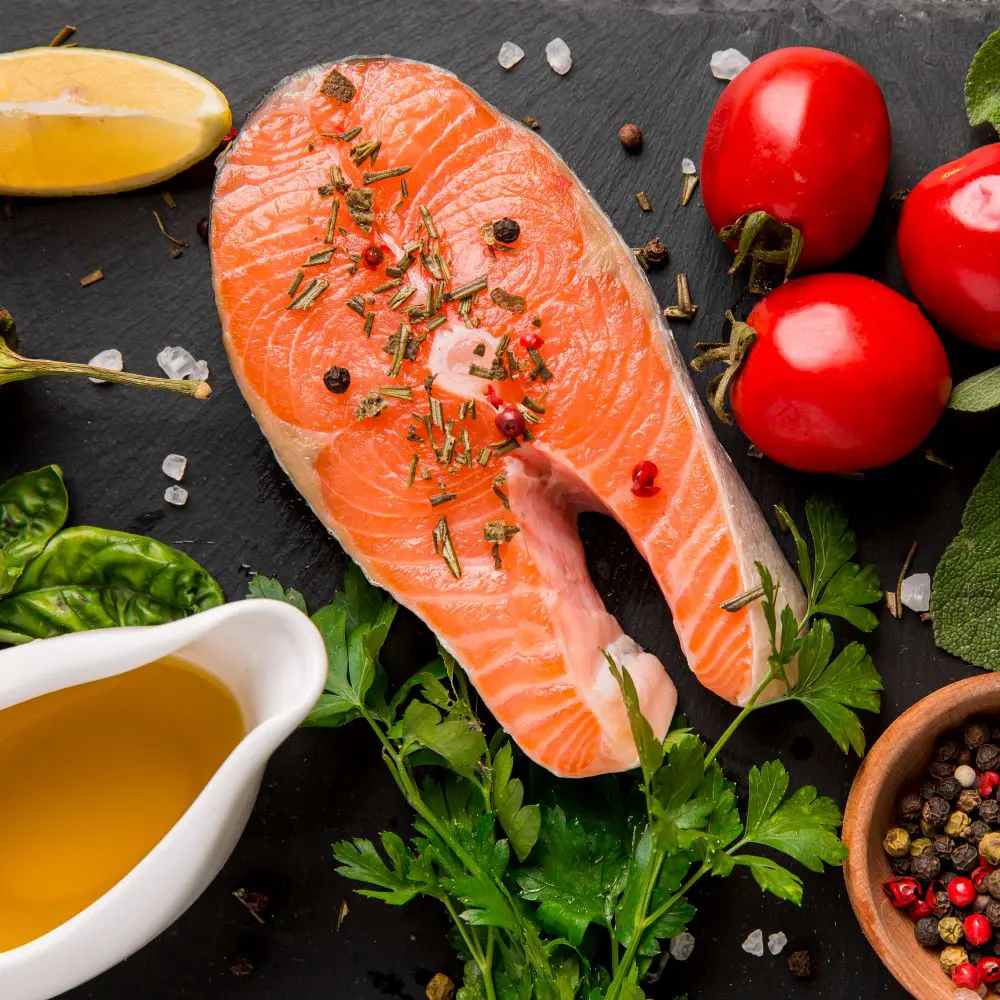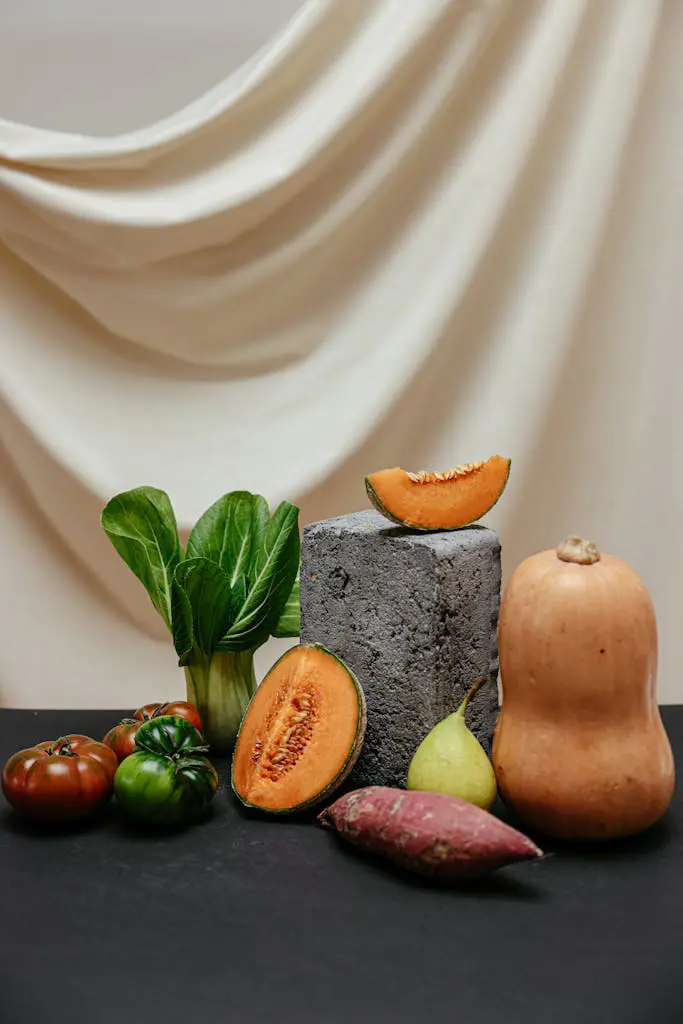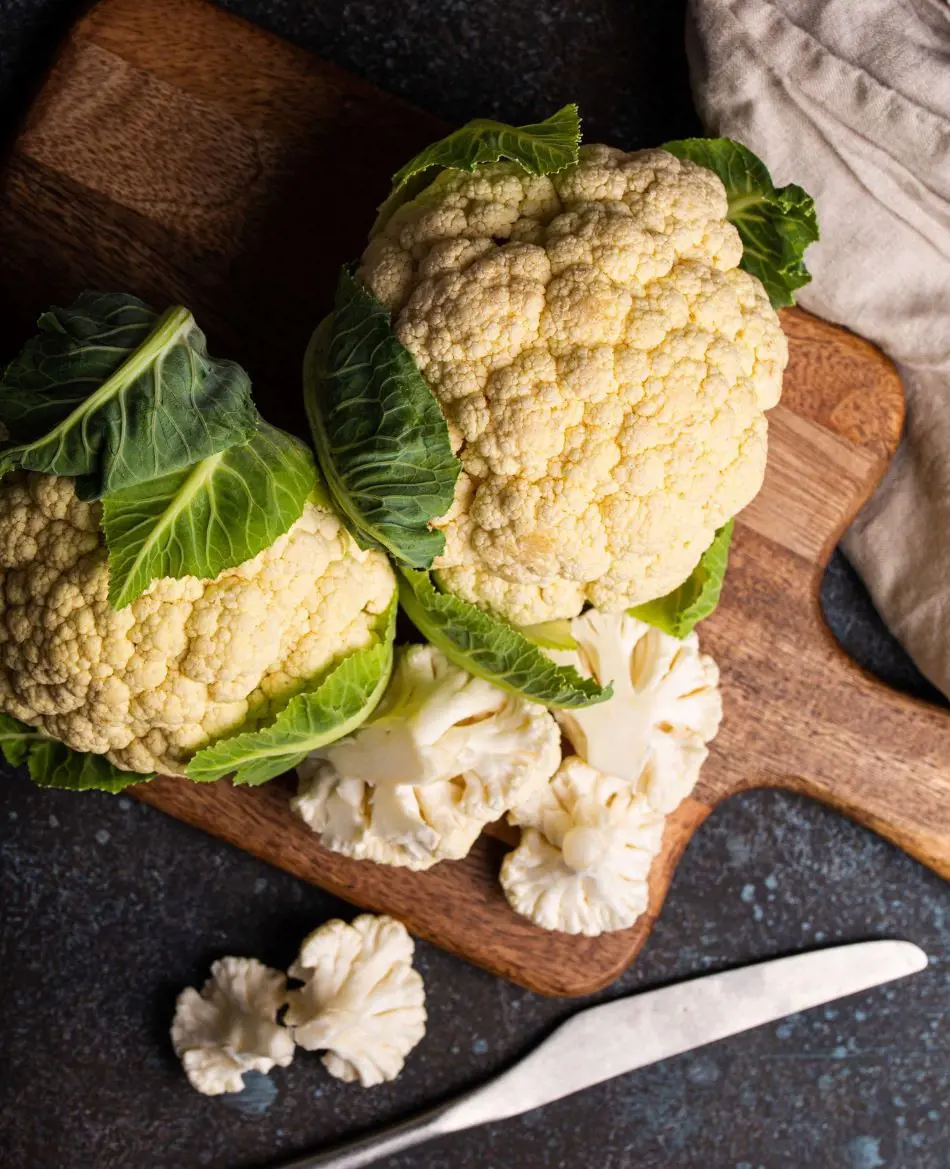25 Non Starchy Vegetables
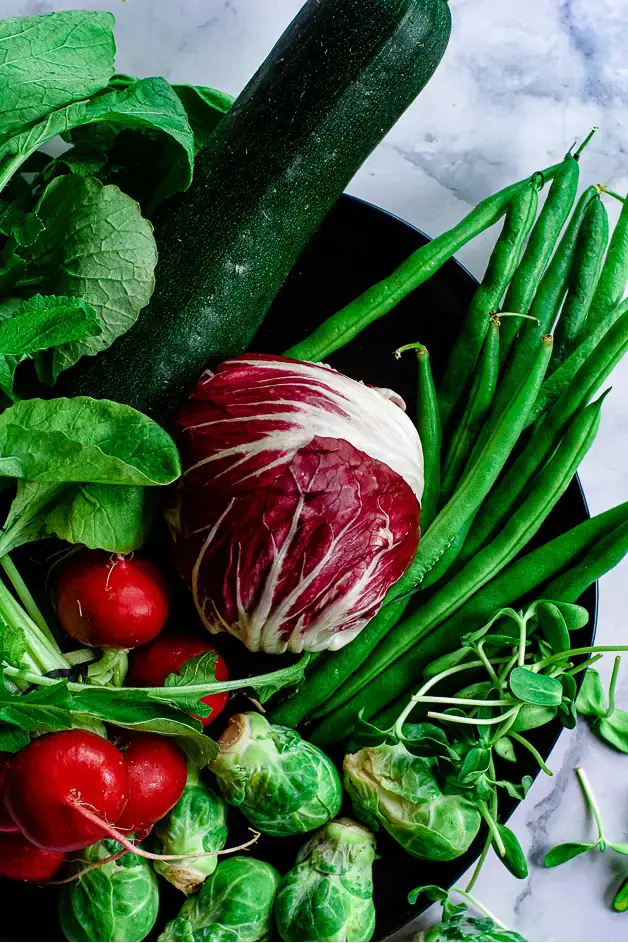
Non starchy vegetables are a nutritional powerhouse that everyone, especially those managing diabetes or watching their carbohydrate intake, should embrace. Unlike their starchy counterparts, these vegetables are low in calories and carbs but rich in vitamins, minerals, fiber, and beneficial plant compounds called phytochemicals.
The beauty of non-starchy vegetables lies in their versatility and health benefits. They allow you to eat more while maintaining balanced blood sugar levels. From leafy greens to crunchy stalks, these vegetables add color, flavor, and nutrients to your plate without guilt.
1. Arugula
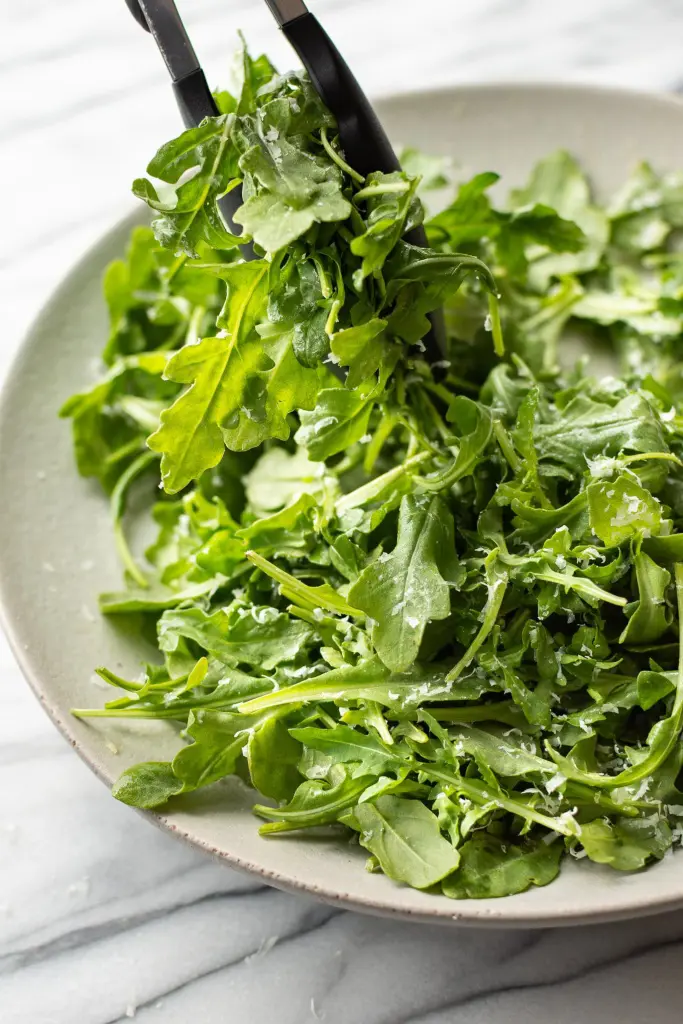
Arugula is a leafy green vegetable with a distinctive peppery flavor. Its small, tender leaves are packed with nutrients, especially nitrates and polyphenols, which are beneficial plant compounds.
A study from 2014 found some interesting potential benefits of nitrates. They might help reduce blood pressure, which is good for heart health. Nitrates may also make your body more efficient during exercise, meaning you need less oxygen for the same amount of effort. This could lead to better athletic performance.
2. Asparagus
Asparagus is a nutritious and flavorful vegetable that's often associated with springtime. Its crisp texture and unique taste make it a favorite in many cuisines. When it comes to nutrition, asparagus packs a punch.
A single cup of cooked asparagus (about 180 grams) contains only 7 grams of carbohydrates, but 4 of those grams are fiber. This high fiber content can help with digestion and feeling full. Asparagus is also an excellent source of several important vitamins, particularly A, C, and K.
These vitamins play key roles in maintaining eye health, boosting the immune system, and supporting blood clotting.
3. Cauliflower

Cauliflower has a mild taste and is often used as a substitute for higher carb foods like potato and rice. Many people wonder if cauliflower starchy, but it's actually quite low in carbohydrates. One cup (107 g) of raw cauliflower contains only 5 g of carbs, 2g of which are fiber.
Is cauliflower a starch? Not in the traditional sense, making it a popular choice for low-carb diets. It's also high in vitamin K and provides 57% of the daily value for vitamin C. Like other cruciferous vegetables, cauliflower may help reduce your risk of heart disease and cancer.
4. Cabbage
Cabbage has some impressive health benefits. As a cruciferous vegetable, it may help reduce the risk of certain cancers, such as breast cancer. One cup (89 g) of chopped raw cabbage contains 5 g of carbs, 2 g of which are fiber.
Cabbage is one of the low starch vegetables that can be enjoyed freely on many diets. It also provides 36% of the daily value for vitamin C and 56% of the daily value for vitamin K, making it a nutrient-dense food choice.
5. Eggplant

Eggplant is a common vegetable in many Italian and Asian dishes. A one-cup (99-g) serving of chopped, cooked eggplant contains 8 g of carbs, 2 g of which are fiber. As one of the vegetables without starch, eggplant is a versatile option for low-carb meals.
While it's not very high in most vitamins or minerals, animal research suggests eggplant may help lower cholesterol and improve other markers of heart health. Its deep purple skin is rich in anthocyanins, powerful antioxidants that may protect against cellular damage.
Eggplant's spongy texture allows it to absorb flavors well, making it an excellent addition to various dishes, from stir-fries to baked casseroles.
6. Celery
When considering a non starchy veg list, celery is an excellent addition. This crunchy vegetable is remarkably low in digestible carbohydrates, making it a popular choice for low-carb diets. A one-cup serving of chopped celery (101 grams) contains only 3 grams of carbs, with 2 grams being fiber.
This means the net carb content is just 1 gram per cup, making it an ideal snack or ingredient for those watching their carb intake. Celery is also a good source of vitamin K, providing 25% of the daily value in a single cup. This nutrient is crucial for blood clotting and bone health.
7. Kale
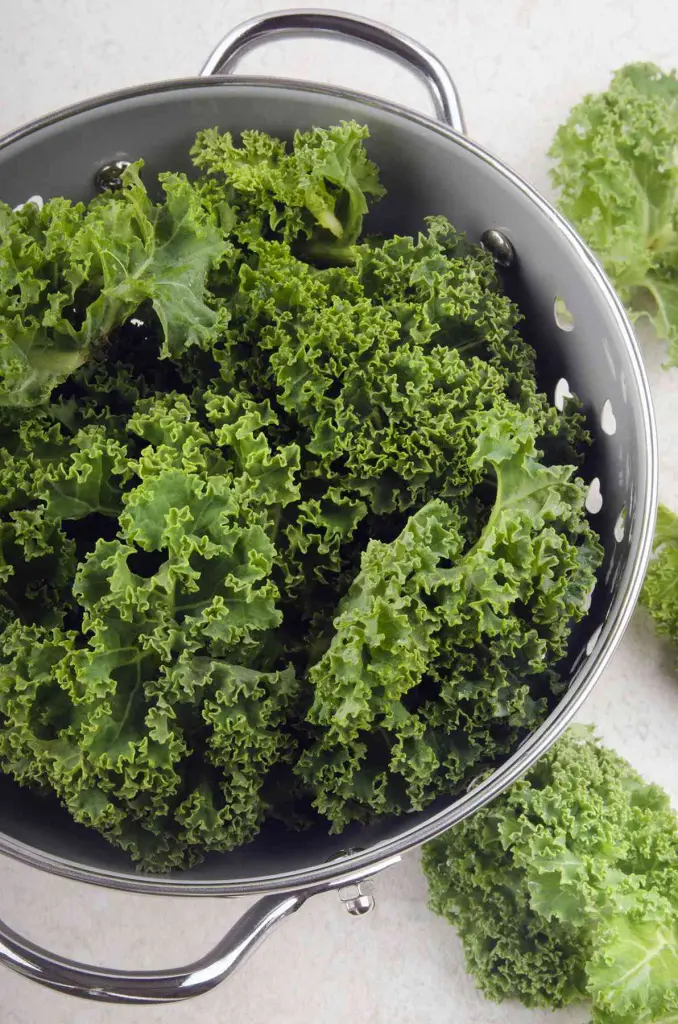
Kale is a nutrient-dense vegetable packed with powerful antioxidants, including quercetin and kaempferol. These compounds play a crucial role in reducing inflammation, fighting oxidative stress, and helping to prevent infections.
Despite its rich nutritional profile, kale is remarkably low in carbohydrates. A cup of raw kale (about 21 grams) contains just 1 gram of carbs, most of which is fiber. This makes it an excellent choice for those monitoring their carb intake.
8. Cucumbers
Cucumbers are low in carbs and very refreshing. One cup (104 g) of chopped cucumber contains just 4 g of carbs, less than 1 g of which is fiber. Cucumbers often appear on non starchy vegetables list due to their low carbohydrate content.
Although cucumbers aren't very high in vitamins or minerals, they contain a compound called cucurbitacin E, which may benefit health. Animal studies suggest that it may have anticancer and anti-inflammatory properties and may protect brain health. Their high water content also makes cucumbers an excellent choice for hydration and weight management.
9. Mushrooms
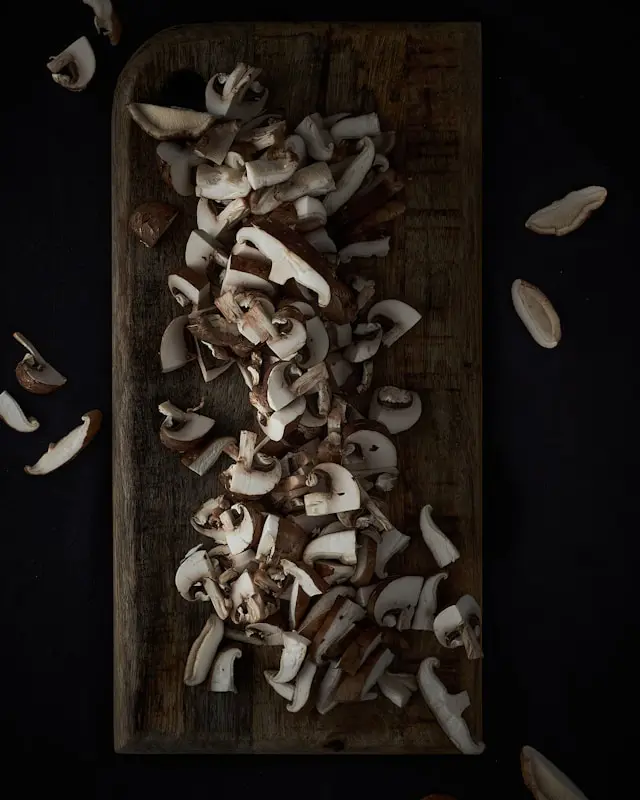
Mushrooms are a unique food that offer a lot of nutrition with very few carbohydrates. This makes them an excellent choice for people watching their carb intake or managing their blood sugar levels.
To put their low-carb nature in perspective, a cup of raw white mushrooms (about 70 grams) contains just 2 grams of carbohydrates. Even better, half of that (1 gram) is fiber, which is beneficial for digestive health and doesn't impact blood sugar like other carbs do.
10. Onions
Onions are a pungent, nutritious vegetable. Although they're fairly high in carbs by weight, people usually consume them in small amounts because of their robust flavor. A half-cup (58 g) of sliced raw onions contains 5 g of carbs, 1 g of which is fiber.
When considering what is a non starchy vegetable, onions often make the list due to their low calorie and carbohydrate content relative to their strong flavoring power. Onions are high in the antioxidant quercetin, which may lower blood pressure and provide other health benefits.
11. Spinach
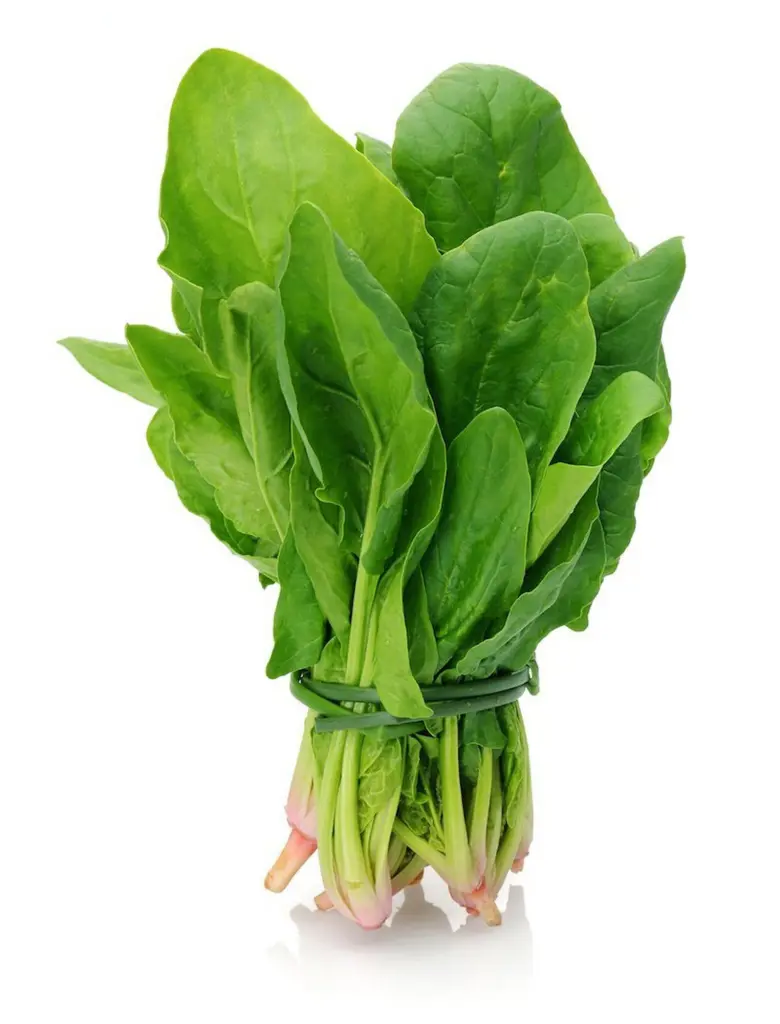
Spinach is a nutrient-rich leafy green that offers significant health advantages. Studies indicate it may support heart health, reduce blood pressure, and lower the risk of eye conditions like cataracts and macular degeneration.
A single cup of cooked spinach provides an impressive amount of vitamin K, exceeding seven times the daily recommended value. While spinach is generally low in carbohydrates, the cooking process concentrates these nutrients as the leaves reduce in volume.
A cup of cooked spinach contains 7 grams of carbs, including 4 grams of fiber. In contrast, the same amount of raw spinach has only 1 gram of carbs, with nearly 1 gram being fiber.
12. Lettuce
Lettuce is remarkably low in carbohydrates, making it an excellent choice for low-carb diets. A single cup (47 grams) contains just 2 grams of carbs, with half of that being fiber. Different types of lettuce offer varying nutritional benefits. Dark green varieties like romaine are particularly rich in vitamins A and K.
These leafy greens are also high in folate, a nutrient that helps reduce levels of homocysteine in the body. This is significant because elevated homocysteine has been associated with an increased risk of heart disease.
13. Radishes
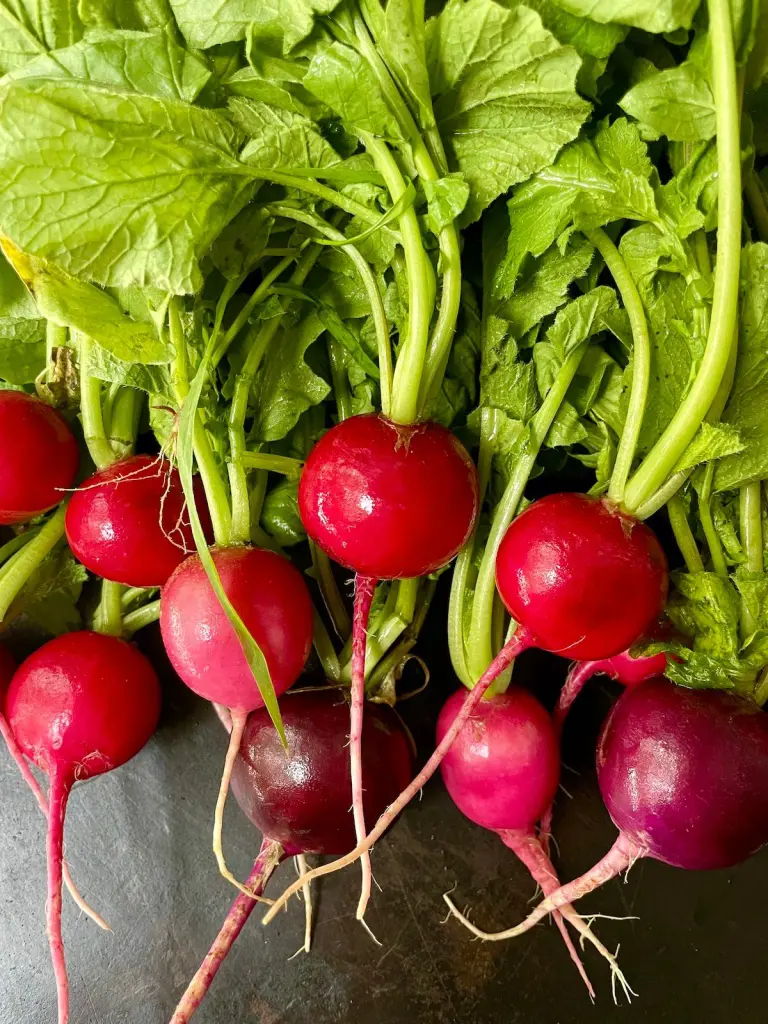
A cup of raw sliced radishes (116 grams) contains just 4 grams of carbs, with half of that being fiber. These low starch veggies are an excellent choice for those looking to add crunch and flavor to their meals without significantly increasing their carbohydrate intake.
Nutritionally, radishes are a good source of vitamin C, providing 20% of the daily value per serving. This vitamin is crucial for immune function and skin health. Additionally, radishes contain compounds called isothiocyanates, which have shown potential in slowing the growth of breast cancer cells in laboratory studies.
14. Tomatoes
When compiling a non starchy vegetable list, tomatoes are an essential inclusion. Although technically a fruit, tomatoes are commonly used as a vegetable in culinary applications and offer numerous health benefits while remaining low in digestible carbohydrates.
A cup of cherry tomatoes (149 grams) contains only 6 grams of carbs, with 2 grams being fiber. This low carb content makes tomatoes a versatile ingredient for those following various dietary plans. Nutritionally, tomatoes are rich in vitamins A, C, and K, supporting eye health, immune function, and blood clotting respectively.
15. Turnips
Turnips are low calorie, non-starchy vegetables with a low glycemic index, so eating them has a minimal effect on your blood sugar levels. According to research, these characteristics support a healthy weight. Turnips are often included in the list of non starchy vegetables due to their nutritional profile.
Vitamin K plays a key role in bone metabolism, and animal studies suggest that glucosinolates may positively affect bone formation. Turnips' content of anthocyanins and sulfur compounds, such as glucosinolates, have been shown to exert liver-protecting effects in rats with liver toxicity.
16. Watercress
Watercress is a non-starchy vegetable, with a very low energy density. That means you can eat a large volume of watercress and other leafy greens without the risk of exceeding your daily calorie requirement.
In a 2011 study, researchers found that increasing fruit and vegetable consumption by just one serving per day led to a 4-pound weight loss over six months. Watercress and similar leafy greens are considered a top food choice for fighting cancer due to their high antioxidant content and potential anti-inflammatory properties.
17. Zucchini
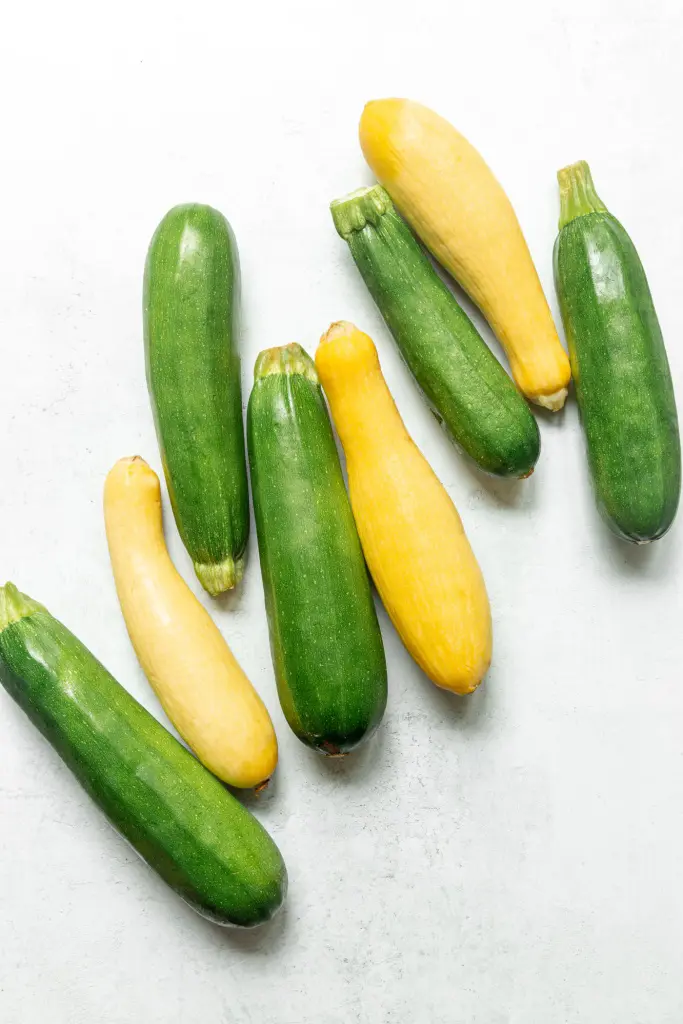
Zucchini is an excellent choice for those watching their carbohydrate intake. A cup of raw zucchini, which is about 124 grams, contains only 4 grams of carbohydrates. Of these carbs, 1 gram is fiber, which is beneficial for digestive health and doesn't contribute to blood sugar spikes.
One of zucchini's standout nutrients is vitamin C. A single serving provides 25% of the daily recommended value. Vitamin C is crucial for immune function, skin health, and acts as an antioxidant in the body.
18. Bell Peppers
Bell peppers, also known as sweet peppers or capsicums, are incredibly nutritious. They contain antioxidants called carotenoids, which may help reduce inflammation, decrease cancer risk, and protect against oxidative damage from cholesterol and fats. One cup (149 g) of chopped red pepper contains 9 g of carbs, 3 g of which are fiber.
This serving size also provides 26% of the Daily Value (DV) for vitamin A and an impressive 212% of the DV for vitamin C, which is often lacking in very low carb diets. Bell peppers are a colorful and versatile addition to many dishes, offering both flavor and significant nutritional benefits.
19. Carrots

Carrots are a healthy option for people with diabetes who need to monitor their blood sugar. As non-starchy vegetables, they can be included in various diets, including the ketogenic diet, in small quantities.
While cooking carrots with honey or other carbohydrates can increase their glycemic index, their high fiber content helps slow down sugar release into the bloodstream. Compared to other root vegetables like potatoes, carrots have a lower glycemic index, making them a better choice for blood sugar management.
20. Green Beans
Are green beans a starch? No, its a non starchy foods where a single cup of cooked green beans (about 125 grams) provides 10 grams of carbohydrates, with 4 grams being fiber. This makes them a nutritious, low-carb option for many diets.
One notable benefit of green beans is their carotenoid content. These compounds have been linked to better brain function as we age, suggesting that including green beans in your diet might support cognitive health over time.
21. Okra
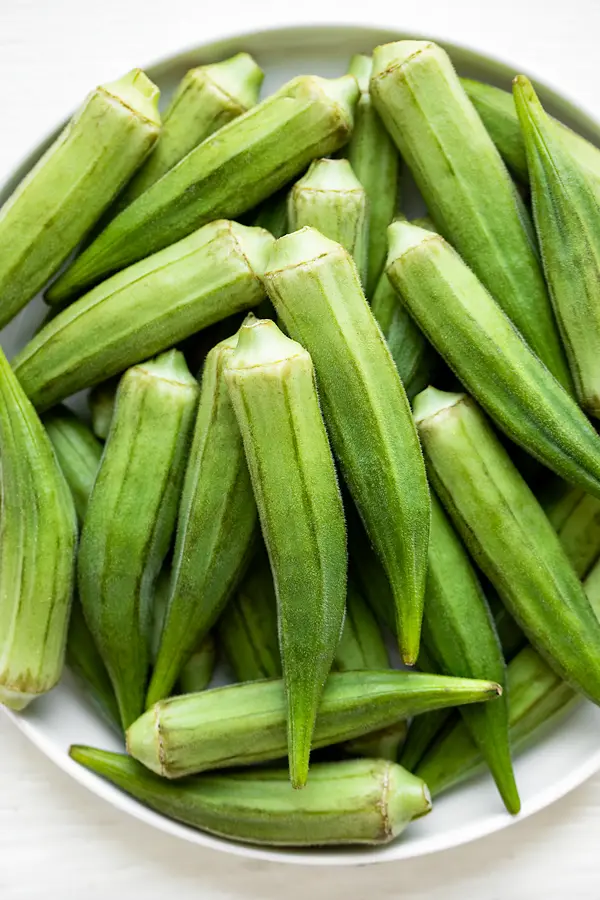
Okra is a low-carbohydrate vegetable that can be beneficial for those monitoring their blood sugar levels. A half-cup serving of cooked or raw okra contains less than 4 grams of carbohydrates, with about half being fiber and half naturally occurring sugar.
As a non-starchy vegetable, okra is believed to have a low glycemic index, meaning it doesn't cause rapid spikes in blood sugar. The glycemic load, which considers serving size, is estimated at 1 for okra - equivalent to eating 1 gram of glucose.
22. Artichokes
A medium-sized globe artichoke, weighing about 120 grams, contains 14 grams of carbohydrates. However, half of these carbs (7 grams) come from fiber, which means the artichoke is relatively low in digestible carbohydrates.
This high fiber content makes artichokes a good choice for those watching their carb intake. Beyond their favorable carb profile, artichokes have been associated with various health benefits, including the potential to lower blood pressure, reduce cholesterol levels, and help regulate blood sugar.
23. Kohlrabi
It is an excellent source of vitamin C, a powerful antioxidant that protects the body from harmful free radicals. This vitamin also plays crucial roles in wound healing, collagen production, iron absorption, and maintaining a healthy immune system.
Additionally, kohlrabi provides a good amount of vitamin B6, which supports various bodily functions including immune health, protein metabolism, and the production of red blood cells. The vegetable is also rich in potassium, an essential mineral and electrolyte that contributes to heart health and helps maintain proper fluid balance in the body.
24. Bok Choy
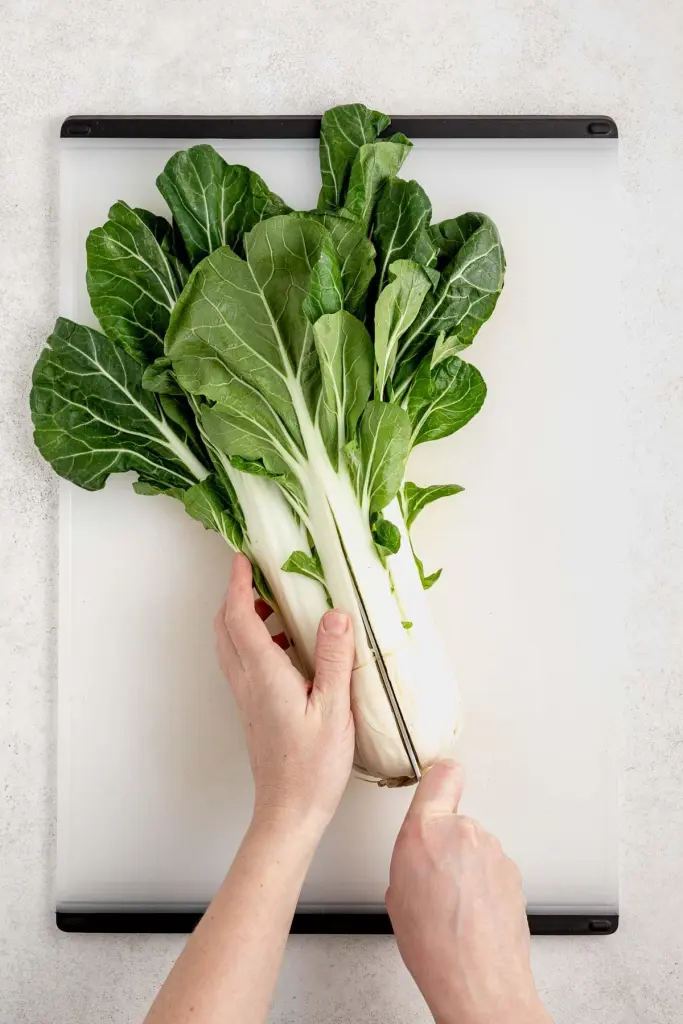
Research has shown that individuals who consume more cruciferous vegetables may have a reduced risk of developing certain types of cancer, including lung, prostate, and colon cancer. One of bok choy's key nutrients is folate, which plays a crucial role in DNA production and repair.
This function may help prevent the formation of cancer cells by reducing DNA mutations. Additionally, bok choy is rich in vitamin C, vitamin E, and beta-carotene, all of which are powerful antioxidants. These nutrients work to protect cells from damage caused by free radicals, further contributing to the vegetable's potential cancer-fighting properties.
25. Leeks
Leeks are members of the Allium family, which includes onions, shallots, scallions, chives, and garlic. While they resemble oversized green onions, leeks have a milder, slightly sweet flavor and develop a creamy texture when cooked. They are particularly high in polyphenols and sulfur compounds, which are powerful antioxidants.
These substances play a crucial role in combating oxidation, a process that can damage cells and contribute to the development of serious health conditions such as diabetes, cancer, and heart disease. Among the antioxidants found in leeks, kaempferol stands out as especially beneficial.
Recent posts
Nutrition
Nutrition
Licorice Root: Benefits And Uses
You can spell it liquorice or licorice; this herb or root has been in use for centuries in most medicinal applications, as a natural sweetener and to enhance flavors. Regarding its origins, it comes from the root of the "Glycyrrhiza galbre" plant and...
Nutrition
Is Salmon Good For You? Nutritional Facts and Benefits
Salmon fish is a staple diet throughout the world, popular as a super food for its nutrients. Whether savored in sushi, poached, grilled, roasted, or pan-fried, salmon offers minerals and vitamins that contribute to healthy bodily functions. In addit...
Nutrition
25 Smoked Salmon Recipes That You Will Enjoy
Salmon is a silver-colored fish that is loaded with many nutrients, vitamins, and omega-3 fatty acids. Smoked Salmon is better for improving your health and reducing the risk of cancer, heart-related diseases, fights inflammation, reduces anxiety and...
Nutrition
Are Sausages Healthy? Nutrition And Health Benefits
Sausages are tasty in an addictive way, making them one of the most popular foods worldwide. You may have enjoyed this convenient food often, whether on a bun with mustard or grilled on a barbecue, the simple preparation methods are what makes its co...
Nutrition
20 Vegetables That Are Rich In Iron
Iron is essential for our bodies to function well. When we don't get enough iron, we often feel weak and tired. It's important to address iron deficiency early by eating the right foods. Fortunately, many vegetables are rich in iron and can help prev...
Nutrition
15 Cauliflower Nutrition Facts And Health Benefits
Cauliflower, a cruciferous vegetable, resembles a white variation of its relative, broccoli. Like broccoli, it has closely bunched florets attached to a thick core, often surrounded by a few leaves. While white is the most common color, cauliflower i...

